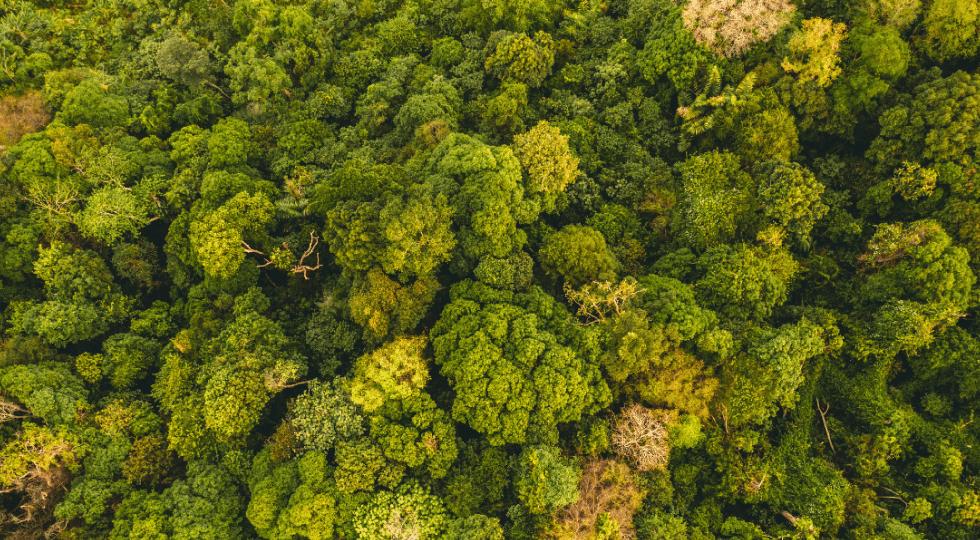The EU’s Regulation on Deforestation-Free Products has the potential to transform the EU’s impact on the environment by obliging companies trading in Europe to halt deforestation in their supply chains.
If you read our guide on the law from earlier this year, you’ll already know the Regulation covers palm oil, soy, beef, wood, cocoa, coffee and their derived products.
Think you know the law inside out? Think again.
A lot has changed since the Commission put forward their proposal in November 2021. In this blog we’ll be investigating the law’s nooks and crannies, and by the end you’ll be an expert.
The Regulation on Deforestation-Free Products is not yet fully agreed.
You may have seen news stories about the anti-deforestation law, claiming that rubber will now be included, or that the cut-off date has been moved. Just remember that the law itself has not yet been agreed. It remains in the final negotiation phase (the EU calls this the trilogue). While certain things have been informally agreed upon, no one can say for sure what will be included in the final text. We know that the commodities in the initial proposal will be included. The benchmarking system also appears to be a unanimous inclusion. The penalties proposed by the Commission were also agreed upon.
2. The law will likely be agreed this year.
Since the Council of the EU and the European Parliament have put out their negotiating positions, the law has entered the trilogue phase of its development. The negotiations follow the timetable of the Rotating Presidency of Council of the EU, where each member state gets to chair the Council. The current Czech Presidency ends on the 1st January, and they want to see this law agreed before then. The Commissioner for the Environment Virginijus Sinkevicius also said he wants to see the law signed off by 2023. The implementation date might be sooner than you think, so get ready!
3. The European Parliament wants to strengthen the law..
The law doesn’t cover all commodities and this might lead to an increase of export deforestation to other imports, like coconut, which aren’t covered. The Parliament wants to see rubber, maize, charcoal, and other types of meat and more land types, such as savannahs, included. Their amendments would allow local and indigenous groups to bring cases of non-compliance to the Parliament directly. If Parliament has its way, the no-deforestation cut-off date will be moved further back, to 31st December 2019 (as opposed to the initial 2020 plan).
4. … But the Council has other ideas
As with all things EU, there is a balance. The Council of the EU, i.e. the body that represents the interests of EU member states, is known for tempering the Parliament’s ambition. The Council wants fewer compulsory import checks for member states, traceability requirements for animal feed weakened, they oppose provisions allowing victims to take non-compliant perpetrators to court, and fiddle with the definition of deforestation. The Council are tough negotiators. For this law to see the light of day, both sides need to compromise. Will rubber and maize be included? It’s a tough one to call.
5. How impactful can we expect it to be ?
The EU is a big player in global markets, but it’s not the only player. Stakeholders have expressed their concern that the EU doesn’t hold enough sway over commodity markets to bring about real change. Therefore the law might undermine Europe’s competitiveness, without much impact. That was the message of Europe’s grain, oilseed and feed trade bodies, COCERAL, FEDIOL and FEFAC, who suggested that it would reduce trade moving into the EU, and push suppliers to move from high to low risk destinations, therefore reducing engagement with areas where deforestation is an issue. Besides that, industry has complained that it’s impossible to ask suppliers for the geo-coordinates of where goods are grown. Haven’t they heard of satellite monitoring?
Where the EU may not have market sway, they will be banking on their regulatory sway. The EU Regulation could send a strong enough market signal to spark other countries to adopt similar laws, and level the playing field.
6. What happens if I don’t comply?
Getting yourself FSC certified won’t cut it anymore; nothing less than full supply-chain traceability is required to guarantee access to European markets. Of course, it’s not as straightforward as that. First time culprits can expect fines capped at 4% of the offending company’s annual turnover. Ouch. Customs reserves the right to confiscate goods associated with deforestation on entry. Perennial non-compliance can earn companies a suspension from economic activity and, eventually, exclusion from public contracts. The perils of non-compliance are not vague threats looming on the distant horizon; regulatory compliance will become the cost of doing business.
7. What’s still on the table?
In short, a lot. Although the different parties are keen to get this one concluded by the end of the year, there are a few thorny issues left. Firstly, the Council doesn’t want victims or indigenous groups to be able to bring their cases to the EU. The Council also wants to see more relaxed controls at the border, and neither the Commission nor the Council appear in favour of the Parliament’s desire to see rubber, maize and other products included. Above all, they haven’t yet agreed on definitions for deforestation and degradation. That being said, Mr Sinkevicius, the Commissioner for the Environment, has himself stated that he expects the law to be concluded this year, and it’s unlikely he’d say so if he wasn’t confident, so, let’s wait and see.
